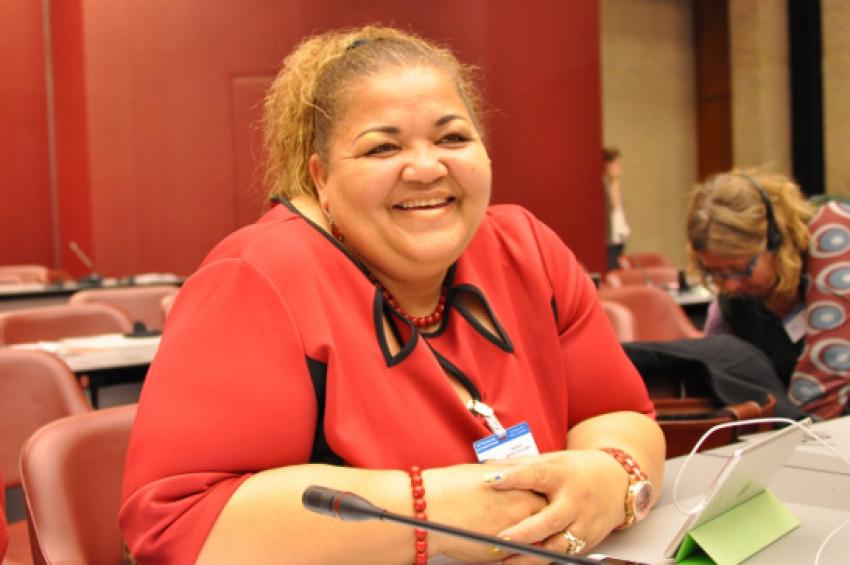National Council chairperson Margaret Mensah-Williams has reiterated the women of Namibia’s unwavering support for the women of the Saharawi Republic, who live in harsh conditions under the foreign occupation of Morocco.
Mensah-Williams become the latest high-profile Namibian leader to speak out in support of the right to self-determination of the people of Western Sahara, following similar stern demands by President Hage Geingob last month.

National Assembly Speaker Prof Peter Katjavivi and International Relations Minister Netumbo Nandi-Ndaitwah have also in recent months spoken on the issue. Morocco annexed Western Sahara in 1975 and has since been resisting all efforts by the Saharawi to regain the right to self-determination and independence.
In response to the support and solidarity shown by the Namibian government towards the people of Western Sahara in their quest to gain independence, Morocco has reportedly threatened to institute an investigation over Namibia’s apparent domination of what was once known as the Caprivi Strip.
Namibia has on many occasions vowed it would not tire nor rest in its quest to see Morocco – which was recently re-admitted into the African Union (AU) – give up its continued occupation of Western Sahara.
The United Nations is also seized with the matter, but the recent re-admission of Morocco to the AU might bolster its continued stranglehold over the country, also known as the Saharawi Republic, some observers of African politics believe.
Mensah-Williams during the 4th Rural Women Parliament with Men as Partners, which ended last week, called on the African community not to turn a blind eye towards the struggle of the people of Western Sahara and their quest for self-determination and independence from Morocco.
She said the just-ended session held at National Council aimed to make sure men do not feel left out simply because the platform is primarily targeting women. Through the session, she explained, the House gave unemployed rural women and men access to parliament and in the process informed them about how laws are made.
This, she said, is in line with National Council’s new vision statement, which states that it aims “to be an accessible legislative chamber that represents citizens of all regions, ensuring good governance and working vigorously for the nation”.
“Through the Rural Women Parliament with Men as Partners, we are working towards fulfilling our vision by engaging women and men who ordinarily would not come to parliament, or necessarily follow our work, because of geographic, economic or various other barriers,” she noted.
She said participants from various regions across Namibia raised some important developmental issues affecting their communities, which relate directly to the Sustainable Developmental Goals (SDGs).
She said the issues raised include the lack of clean drinking water in some parts of the country (which relates to SDG6), as well as the problem of a lack of access to healthcare in some rural areas (SDG3).
She said the National Council has taken note of the resolutions and motions passed, saying an official report of the session was going to be tabled in the National Council, and if agreed to, would be adopted by the House.
Thereafter, the resolutions proposed will be channeled to the ministries or agencies for implementation. Moreover, the report will be made available at all regional council offices in due course after it becomes a public document.
In an aside, Mensah-Williams also warned parents and guardians of children against the use by children of gadgets that contain exploitative content.
“I am sure you have young children and grandchildren who own smartphones. There are grave dangers that come with these advanced technologies that you have a duty to protect them from, such as adults who lure them into sharing naked pictures or videos of themselves using WhatsApp.
“You need to educate the young ones and make them aware of these dangers. For those underage, please tightly monitor their online activities,” she advised.
